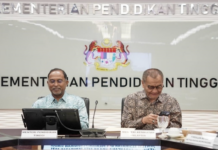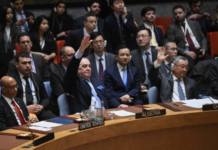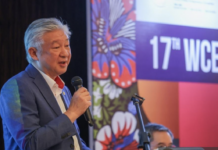KOTA BHARU, Jan 31 — Full compliance of all Malaysians with the standard operating procedure (SOP) is the key to curbing the spread of COVID-19 in the country, said Health director-general Tan Sri Dr Noor Hisham Abdullah.
“If we look at what is important, it is not the Movement Control Order (MCO) or Conditional MCO but compliance with the SOP. If there is no important matter then stay at home,” he told reporters after visiting the COVID-19 Quarantine and Low Risk Treatment Centre (PKRC) at the Pusat Tarbiyah Islamiah Kelantan (PUTIK), near here, today.
Dr Noor Hisham said this because he acknowledged that there were certain relaxations of conditions in the implementation of the MCO this time around compared with March last year, therefore, he hoped that the people would play a role in efforts to reduce the spread of COVID-19 infection.
“We understand that there is flexibility because we have to look at both health and the economy. So these two factors need to be balanced. That is important so that we can control the cases and also run the economy,” he explained.
Asked about the possibility of the MCO being extended after Feb 4, Dr Noor Hisham said the Ministry of Health (MOH) only provided advice and suggestions to the National Security Council (MKN), for appropriate action.
“Hence, to reach a decision, we will discuss again by looking at appropriate action. Now we see Selangor recording high daily cases. So, will we aim for Selangor only, then we will discuss in MKN,” he said.
Commenting on his visit to Kelantan, Dr Noor Hisham said that the health facilities to treat COVID-19 patients in the state still have the ability to provide the best service, but from the aspect of human resources and medical equipment, they need to be improved.
“Thus far, we have not yet to improve the PKRC as now we see PKRC in PUTIK is yet to be fully utilised and there is still capacity, but if necessary we can improve it.
“We still have space, for example, at the Sultan Ismail Petra Hospital, in Kuala Krai there are still five empty intensive care unit (ICU) places. So, what we need is equipment as well as expertise and trained nurses to be placed there,” he added.



















